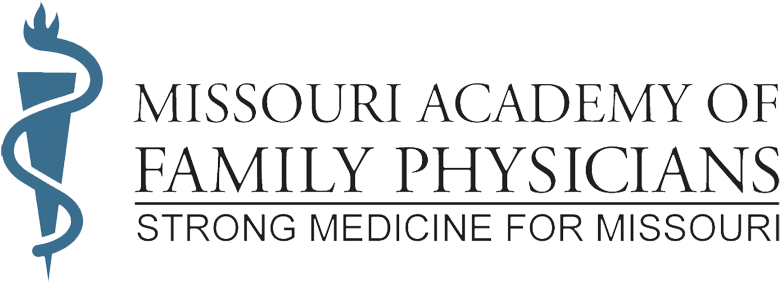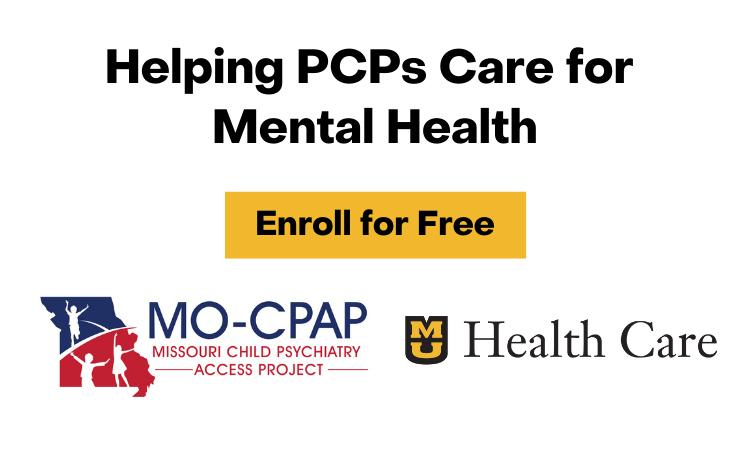Her words resonated as we met with Board member Dr. David Pulliam and his partner Dr. Jayne Brockhaus. After touring Family Practice of Central Missouri, which has served residents of Higginsville and Warrensburg for over 25 years as an independent business and now as an affiliate of Western Missouri Medical Center, it was clear Drs. Pulliam and Brockhaus had ‘it’ as family docs. We were joined shortly by another ‘it’ family doc, Dr. Sarah Kirchhoff, recently graduated from University of Missouri Family and Community Medicine Residency and returned to practice in her nearby hometown of Concordia. We listened as these doctors described joy in walking journeys with their patients toward diagnosis, toward healing, toward acceptance.
We also heard anxiety about who stands ready to take their place. Drs. Pulliam and Brockhaus fear leaving their communities short on physicians when they are ready to retire. Recruiting talented, community-minded physicians to serve on a long-term basis has proven challenging to some rural areas in Missouri. Dr. Kirchhoff herself filled a vacancy in Concordia that had been present for two years. MAFP has begun conversations about how to develop more people like Dr. Kirchhoff – fostering academic excellence in middle and high school students and inspiring them to health care careers in their communities – or how to expand residency training in Missouri.
Finally, we heard these doctors can sometimes feel mishandled by leadership. Hospital systems acquiring clinics for the first time may learn clinics demand different management techniques, techniques that account for downstream revenue, intangible benefits and supporting physicians, providers and staff who are patients’ first contacts in a broader system. Sometimes administrators must learn for the first time about the range of care a family physician provides lest they risk eroding scope of practice of some of their key stakeholders.
I wondered aloud if Drs. Pulliam or Brockhaus had considered administrative positions themselves. Family physicians, particularly those who’ve owned practices or performed hospital or maternity care, are uniquely suited to clinic or hospital administration. Having consulted with or worked in every department alongside adult and pediatric subspecialists within the system, family physicians have broad connections to other clinicians. They are familiar with the balance of clinic and hospital care, electronic health records and the scope of practice that can be safely ensconced in both. They have honed communication skills to forge business and personal connections in local communities. And yet family physicians may be overlooked as potential leaders, intimidated by the process or simply choose not to do it because their passion for patient care remains rooted in one-on-one clinical interactions.
Interestingly, we were joined by a hospital administrator at our very next step. Board member Dr. Carrie Peecher of Marshall Family Practice introduced us to Dr. Darin Haug, a physician-administrator for Fitzgibbons Hospital. As have many other physicians with whom we’ve visited, both expressed concerns regarding scope of practice, administrative burden and negative work-life balance, largely related to long hours at home spent documenting in electronic health records.
Through the course of our conversation, I gleaned neither Dr. Peecher nor Dr. Haug were originally from Marshall and others of Fitzgibbons Hospital medical staff members apparently weren’t either. They were recruited to the area. Noting their clinic’s success at recruiting, I asked what techniques they’d implemented that other districts might replicate. Neither felt successful recruiting was based on technique so much as culture. Both Drs. Peecher and Haug described the Marshall community as friendly and the medical staff as collegial then immediately noted the hospital and clinic mindfully integrate with the community. Still Dr. Haug worries it’s not enough to sustain a pipeline of physicians to Marshall and so we spent time discussing medical student or resident rural rotations and implementing more rural training tracks in our state, something MAFP is also working on with the Missouri Primary Care Workforce Coalition.
My sincere thanks to Drs. Brockhaus, Haug, Kirchhoff, Peecher and Pulliam for taking time from their busy practices to meet with me. My thanks, too, to Kathy Pabst for coordinating all our schedules and to the MAFP staff for supporting this endeavor. Thanks for reading this month’s post of Traveling the Trail with MAFP and I look forward to my next district visit soon! As always, any errors of commission or omission, any misrepresentation, any opinion or any offense given within this blog is solely my own and does not reflect the stance, policy or opinion of the MAFP, AAFP or any of its staff.
For more information about the AAFP’s policy on rural graduate medical education, visit https://www.aafp.org/about/policies/all/rural-practice.html.
For more information about developing leadership skills as a family physician visit AAFP’s Member Benefits Physican Health First at https://www.aafp.org/membership/benefits/physician-health-first/phf/leadership-opportunities.html.
For more information about the work MAFP is doing on these and other issues, please visit https://www.mo-afp.org/ or follow MAFP on Facebook or Twitter.



